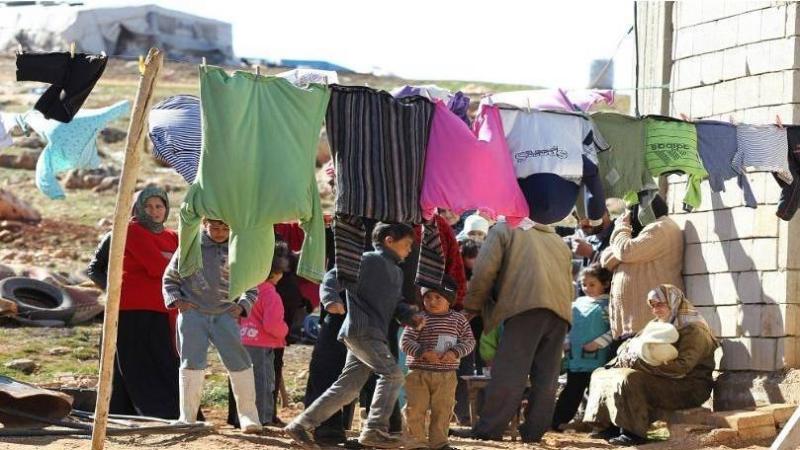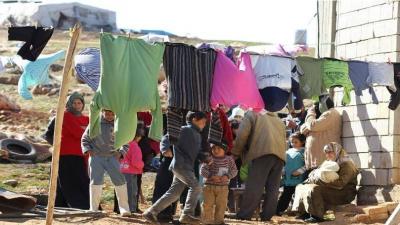It seems that the file concerning Syrian displaced persons is destined to wander from one local meeting to another, and from one international forum to another, without any known conclusion. Sometimes it is given momentum, sometimes it is frozen, sometimes it is addressed urgently, and other times timidly. However, without a doubt, it has become an explosive file, knowing that a roadmap was set to keep it on the correct track. The international response to this roadmap has not met the required level. Perhaps the most dangerous decision was made at the recent Brussels Conference regarding the integration of Syrian displaced persons into the communities hosting them.
Some may question the meetings held at Baabda Palace for this purpose, as well as other meetings at the Grand Serail specifically in the Displaced Committee, wondering if there is any disparity regarding the management of this file. Others may also inquire about the absence of Minister of Displaced Affairs Issam Charafeddine from the last two Baabda meetings. However, in reality, an official denial of any divergence or conflict in responsibilities was issued; each minister follows the issue from a specific angle. Decisions have reportedly been made about this file that await implementation, some of which explicitly wait for the international green light that remains firmly locked on red.
Despite the international coldness, the Lebanese state has moved, and it has been noted that what is required is the multiplication of coordination to ensure that no attempt goes to waste. But will this new attempt fail? In this tangled file, it is impossible to predict anything; however, an attempt remains better than inaction.
Recently, the file of displaced persons was addressed from all its aspects, especially concerning the legal situation of these displaced persons, how the law interacts with them, and the regulations and protocols that govern the displacement situation, thus determining and addressing their status. It is known that the situation of the displaced falls within several groups: those displaced for security reasons, those displaced due to humanitarian circumstances (i.e., fleeing bombing and destruction), those displaced economically who receive monthly assistance from the UN and return directly to Syria, as well as the displaced who have committed crimes and against whom verdicts have been issued, in addition to the displaced who manage businesses (have established a company or factory).
The "Al-Liwaa" learned from sources following these meetings that communications are ongoing regarding the status of these displaced persons and to ensure they possess a displacement card. These sources indicated that the security reasons that prompted Syrians to flee to Lebanon have dissipated, while 90% of Syrian territory has become safe and there is a return to stability. The sources questioned why these individuals are not returning to Syrian territory, especially since a large number participated in the Syrian presidential elections at the Syrian embassy in Lebanon, asking: How can some of them be wanted for security issues yet participated in these elections?
The sources discussed the existence of legal mechanisms that govern cooperation with Syria in this regard. They noted the entry of a group of Syrians illegally into Lebanese territory and their infiltration into society. They clarified that these meetings aimed to define displacement and its concepts according to the applicable laws in Lebanon and in accordance with international laws. The sources pointed out that this crisis has revealed issues in cooperation with the UN Refugee Agency, especially as between 2011 and 2015, the Lebanese state did not provide data regarding the entry of Syrians, and post-2015, it did not record the names of the displaced but only provided codes for them to receive assistance.
These same sources revealed that the UN's handling of this file has been characterized by negativity, accusing what it considered “discriminatory measures against refugees in Lebanon.” It remains unclear if there will be a meeting with the representative of the UN Refugee Agency in Lebanon despite the agency's recent positions. The stance of the international community is no different, particularly its focus on linking the return of displaced persons to a political solution in Syria. The sources emphasized that it is difficult to expect a solution that could take a long time. They explained that swift action is crucial to determine the legal and humanitarian framework for displaced persons and stressed that there are decisions issued by the Syrian state facilitating this return while recalling the previously organized trips in Lebanon to repatriate them to Syria under the supervision of General Security Director Major General Abbas Ibrahim, at which time no one was harmed.
In light of the presence of displaced persons who stay in Lebanon for days and then return to Syria, there have been calls for the revocation of their displaced status; however, there has been no response to this demand from international organizations. The sources reiterated that the meetings at Baabda Palace, chaired by President Michel Aoun and attended by Ministers Abdullah Bou Habib, Hector Hajjar, and Major General Ibrahim addressed the legal aspect of the displacement file and what the law stipulates regarding displaced persons.
The sources pointed out the outcomes of the Brussels Conference concerning displaced persons, particularly regarding the integration of the displaced into the communities hosting them, describing this as a dangerous matter. They noted that this issue is under high-level scrutiny and that there is a need to address it. The economic cost borne by Lebanon due to the Syrian displacement is estimated at $45 billion. They pointed out that Lebanese officials have only received expressions of praise and gratitude from foreign and international delegations for Lebanon’s handling of the displaced persons file. "It's not a case of persecution," these sources stated, but rather a demographic imbalance that the country is experiencing due to this displacement, along with the fact that the displaced benefited during the crisis from subsidized materials that are meant for Lebanese citizens.
The sources added that this displacement requires a swift and radical solution. They clarified that caretaker Prime Minister Najib Mikati will later be briefed on the outcomes of these meetings, which will continue in further meetings. They also denied any conflict in the actions being taken by the concerned parties, as each has specific responsibilities, including the Minister of Displaced Affairs who has been tasked with following up on the technical and logistical details regarding the completion of the return of the displaced and communicating with Syrian officials. For this purpose, he will visit Syria at the end of this week. No two will disagree that the Syrian displacement file is complicated, and there is an intention to address it; however, there are details beyond this intention that require solutions yet to mature.




